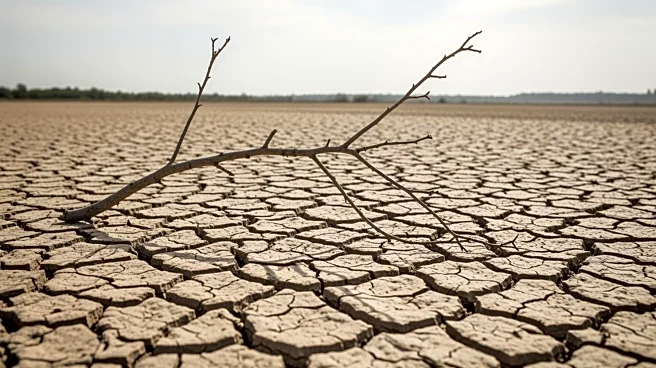What is the story about?
What's Happening?
Recent research led by scientists from NASA and Toho University in Japan suggests that Earth's oxygen-rich atmosphere may face a significant decline due to the Sun's increasing heat. The study indicates that within 10,000 years, the Sun's warming could disrupt photosynthesis, leading to a drastic reduction in oxygen levels. This change could render the planet inhospitable to most life forms, as oxygen-dependent species would struggle to survive. The study highlights the potential for Earth's atmosphere to evolve into a state characterized by high methane levels, low carbon dioxide, and the absence of the protective ozone layer. This scenario could mirror early Earth conditions before the Great Oxidation Event, fundamentally altering the planet's biodiversity and ecological dynamics.
Why It's Important?
The implications of this study are significant for understanding planetary habitability. The potential decline in Earth's oxygen levels underscores the temporary nature of habitable conditions on any planet. This research challenges the assumption that oxygen presence guarantees permanent habitability, impacting how scientists search for life on exoplanets. While the immediate effects on humanity are not a concern, as the timeline spans thousands of years, the study serves as a reminder of the delicate balance that sustains life on Earth. It prompts a reevaluation of the factors contributing to planetary habitability and the sustainability of our environment for future generations.
What's Next?
The study suggests that the initial stages of oxygen decline could begin within approximately 10,000 years, marking the start of irreversible atmospheric changes. Researchers emphasize that this process is part of Earth's natural evolution, not directly linked to anthropogenic climate change. The findings could influence future exploration of exoplanets, as scientists reassess the significance of oxygen as a biosignature. Understanding these changes may enhance our search for life in the cosmos and inform strategies to maintain Earth's habitability.
Beyond the Headlines
This research highlights the transitory nature of planetary systems and the importance of understanding long-term atmospheric changes. It raises questions about the sustainability of life-supporting environments and the factors that contribute to planetary habitability. The study encourages a broader perspective on Earth's future and the potential for similar processes on other planets, influencing scientific exploration and environmental policy.














